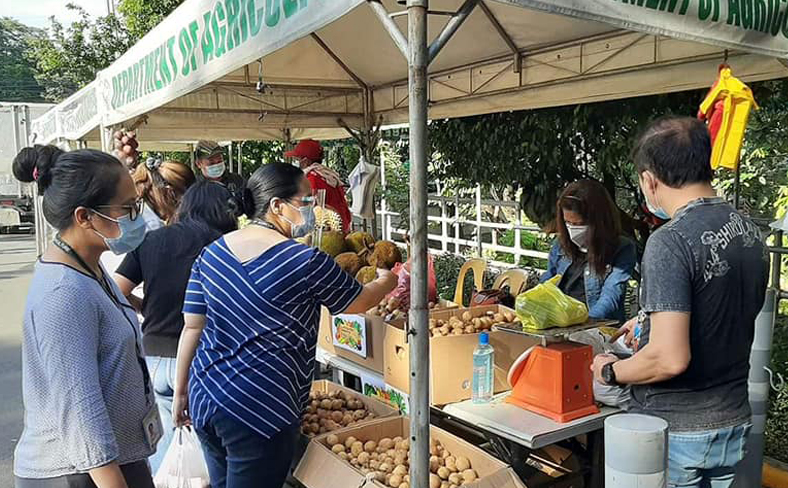by Antonio V. Figueroa
Although the Europeans, particularly the Spaniards, first set foot in Davao in 1521, German imprints did not find space in local historical accounts until the 1880s, chiefly in scientific explorations that placed the region in world map. The legacy the Germans have left behind has only been sparingly mentioned in Davao’s study of historical writings.
In the region’s floral past, several German names stand out as indelible milestones given their names have been immortalized in two significant flower discoveries in Davao.
The Rafflesia schadenbergiana, called by the Bagobo as ‘bo-o,’ is named after naturalist Alexander Schadenberg, a native of Breslau, Germany, who braved the forest fastnesses of Sibulan, Santa Cruz, Davao del Sur. The burrowing skink (Brachymeles schadenbergi Fischer), discovered in 1885 in Davao, was also named in his memory. He was, in personal life, a pen pal of Dr. Jose P. Rizal, the Filipino national hero.
On the other hand, Vanda sanderiana, the waling-waling discovered in 1882 in Mount Apo, was named after Heinrich Friedrich Conrad Sander, a German orchidologist, while Rafflesia apoanum Stein was in honor of Stuttgart, Germany-born Berthold Stein, a German botanist (orchid specialist), lichenologist (lichen expert), and mycologist (a scientist who studies fungus and its genetic and biochemical properties) known for his contributions in the field of taxonomy.
Dr. Otto Koch, a German naturalist then living in Cebu, collaborated with Schadenberg in the discovery of the rafflesia, the world’s largest parasitic flowering plant. Together, they made two successful ascensions of Mount Apo.
German legacy was further magnified during American occupation, this time in public governance with the appointment of Henry Gilsheuser who, during and after war, also went to serve the Philippine government in different capacities.
Born in Hessen, Germany, in 1881, he became the penultimate American governor of Davao before a Filipino administrator governor was appointed in 1915. He took up public education in Germany but continued his studies in New York when his parents migrated to the U.S.
Gilsheuser fought in the Spanish-American War, appointed third lieutenant in the Philippine Constabulary in 1903 and rose to the rank of lieutenant colonel. He served as district secretary of Cotabato, governor of the Lanao province, and later appointed by Gen. John J. Pershing, commander of the Military Department for Mindanao and Sulu, as Davao governor in 1910.
Commonwealth President Manuel L. Quezon, when war broke out, appointed him fuel and transportation administrator of the Civilian Emergency Administration and was in-charge of the Emergency Control Commission during President Sergio Osmeña’s watch. During the presidency of Manuel A. Roxas, he was a member of the US-Philippines War Damage Commission.
For his efforts, he was awarded by the Philippine government the Philippine Legion of Honor. A dyed-in-the-wool Mason, he died in Manila at the Lourdes Hospital in Manila on Feb. 27, 1964 at age 83.
Germany, a country with a third of its population affiliated with Roman Catholicism, shares religious affinity with Davao. In fact, three of the religious orders founded by St. Arnold Jannsen, born in Goch, Germany, have provinces (branches) in Davao City, namely the Societas Verbi Divini (SVD, 1875) the Missionary Sisters Servants of the Holy Spirit (SSps, 1889), and the Sister Servants of the Holy Spirit of Perpetual Adoration (SSpSAP, Sept. 8, 1896).
The SVD priests took over the management of the Saint Francis Xavier Regional Major Seminary at Catalunan Grande, Davao City, in the 1980’s from the Foreign Mission Society of Quebec (PME Fathers), while the SSpSAp, also known as the Pink Sisters, holds court at the Holy Spirit Adoration Convent, along Seminary Road, Catalunan Grande, Davao City.
To underpin Germany-Davao alliance, the University of Southeastern Philippines, a state learning institution, introduced years ago under its Institute of Language and Creative Acts the study of German language, which was initially headed by journalist-professor Klaus Döring, a native of Spenge, North Rhine-Westphalia, Germany, and Davao resident since 1999.
Adding another feather to the partnership was the opening of the consulate of the Federal Republic of Germany in Davao with Döring, a long-time German court interpreter, language teacher and married to a Davaoeña, was installed as honorary consul in southern Mindanao.
An indication that German descent is here to stay, Davao City mayor, Sara Zimmerman Duterte-Carpio is a scion of German-born migrant who became naturalized American.











